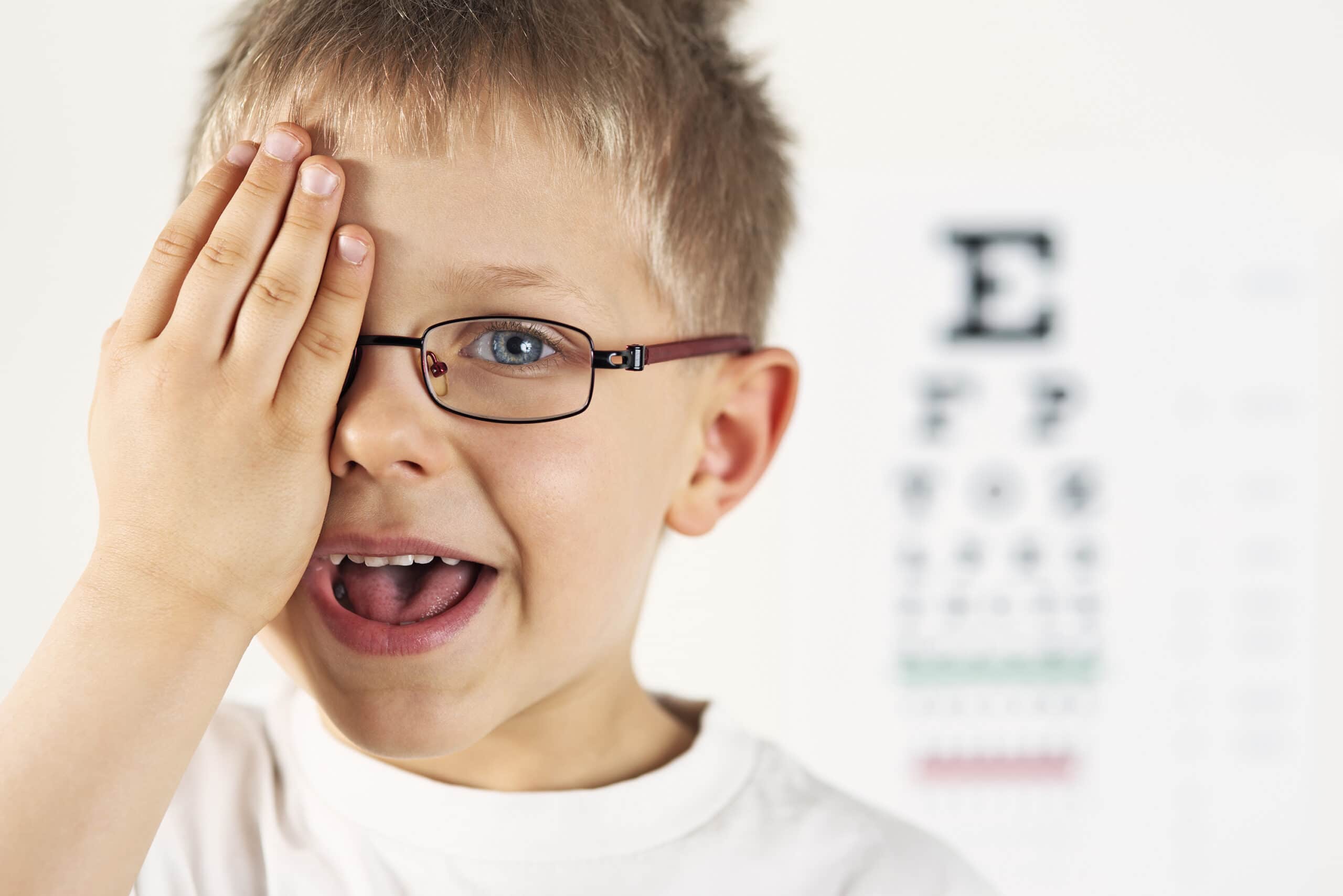
 Most parents do not realize that pediatricians start evaluating children’s eyes very shortly after birth to determine if the eyes and vision are developing properly. An important visual milestone is at 3 months of age, when it is expected that your child will be able to follow a target. Children continue to be evaluated by the pediatrician’s office and as the child gets older, instrument-based screenings are used to help identify any risk factors that could adversely affect vision. Instrument based screeners can help with shy, noncommunicative, preverbal or uncooperative children. Continued vision screenings or examinations during school years are important to determine the need of glasses and other possible visual issues that can develop. Proper vision correction will allow your child the best visual opportunity to succeed in school.
Most parents do not realize that pediatricians start evaluating children’s eyes very shortly after birth to determine if the eyes and vision are developing properly. An important visual milestone is at 3 months of age, when it is expected that your child will be able to follow a target. Children continue to be evaluated by the pediatrician’s office and as the child gets older, instrument-based screenings are used to help identify any risk factors that could adversely affect vision. Instrument based screeners can help with shy, noncommunicative, preverbal or uncooperative children. Continued vision screenings or examinations during school years are important to determine the need of glasses and other possible visual issues that can develop. Proper vision correction will allow your child the best visual opportunity to succeed in school.
Vision screenings are not only aimed to monitor vision development, but also to help early identification of amblyopia and strabismus. Amblyopia and strabismus, or “lazy eye”, are very common conditions in children. It is more prevalent in those with a family history or a history of premature birth. The earlier treatment can be initiated, the better the outcome. Any crossing or drifting of the eyes is considered abnormal after the first few months of life. If any crossing or drifting is observed, a complete eye exam is recommended.
If there is any abnormal vision screening or visual concern, it is important to schedule your child for a complete eye exam. Early intervention and treatment can help prevent minor problems from becoming major problems.
Once children start participating in sports and recreational activities, eye protection is needed to help prevent serious injuries. Ninety percent of the sports related eye injuries in school aged children can be avoided with protective eyewear. It is important to understand that regular prescription glasses do not provide adequate protection and if a trauma occurs, they can actually cause more damage. The American Academy of Ophthalmology recommends that even those patients who do not require optical correction use protective eyewear during sports to help prevent eye trauma.
For more information or to schedule your child’s eye exam, visits us online or call 502-588-0550.









